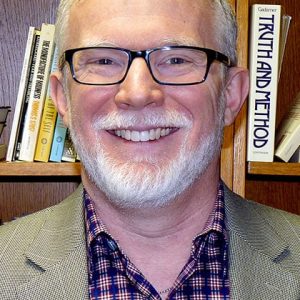5:00 Mass | 5:45 Drinks & Hors d’Oeuvres | 6:30 Lecture | 7:15 End
Co-presented by Loyola Academy.
Free and open to the public. Registration required. For questions, please contact Marial Corona at mcorona@lumenchristi.org.
Technology always pushes the limits of our thinking and challenges us morally. In this presentation, we will see that our difficulty with evaluating the morality of technology is because technology sits very close to human identity. Human culture just is technology. Technology/culture is produced by us, but it in turn comes to produce human identity. If this is true, what do we make of the work of human hands as Christians?
About the Magis Series
The Magis Series on Faith and Reason is a partnership between the Lumen Christi Institute, St. Ignatius College Prep, and Loyola Academy to bring accessible yet sophisticated lectures on the Church’s intellectual tradition to the broad lay public. The event is open to everyone from high school students to retirees. Anyone who desires a lively entree into the mind of the Church is welcome and encouraged to attend; no affiliation with either high school is needed.


